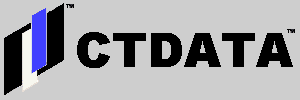Dave Aiello wrote, "For the past 24 hours, I have been struggling with the short-comings and idiosyncracies of Netscape Enterprise Server version 3.63 on Windows NT Server 4.0. Netscape Enterprise Server is an obsolete web server that we are running on one of our production servers connected to the Internet."
"We are still running Netscape Enterprise Server on one of our servers because its performance has never been a significant enough issue to justify the substantial effort to migrate the web sites that are still running on it."
"The key factor in getting us to begin the migration is that we want to change weblogging platforms. This would be easy were it not for the fact that few weblogging platforms support the database present on this server and, more importantly, the weblog tools generate different URLs for archival content."
"I began the migration by attempting to write a custom error response handler that would redirect visitors from the URLs generated by our old weblog software to the URLs generated by the new software. As I said in my latest article about URL naming, writing this CGI program was more challenging that I expected."
"There are significant holes in the documentation available for obsolete versions of Netscape Enterprise Server. Although AOL Messaging Solutions is still maintaining documentation for Netscape Enterprise Solutions, that documentation is for AOL's fork of the Netscape commercial code base. It doesn't have the same features as the version with which I am working."
"I finally figured out how to solve the problem with writing a custom error response handler. But, it I was only able to accomplish this by trial and error."
"These difficulties brought home to me the urgency of getting this last server on to a machine where all of the services are currently patched and well documented. For us, this means a LAMP-based server."
"For CTDATA, the greatest cost so far has been opportunity cost. We should be out selling instead of migrating services as I am today. If your company is running legacy servers for part of its Internet presence, please take my advice: upgrade before it costs you money."
